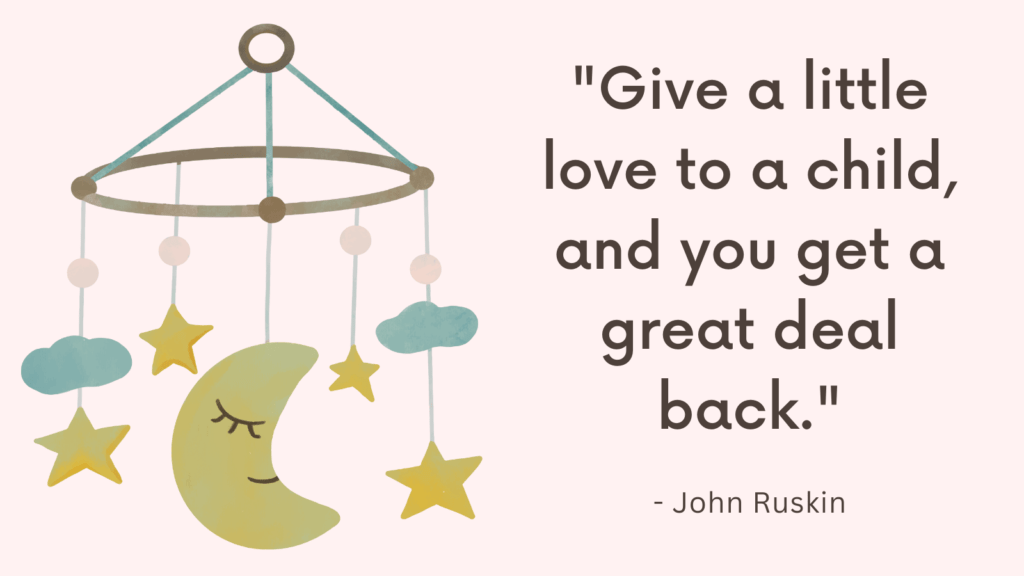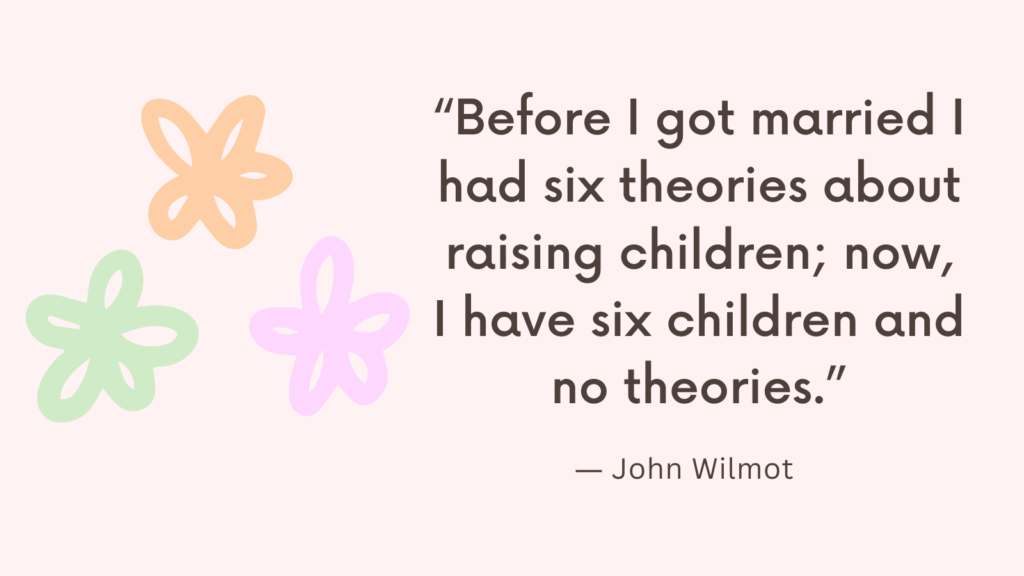In this post you’re going to find out the answer to the questions: Why Does My Toddler Hate Me?
Why Does My Toddler Hate Me?
While you may feel that your toddler hates you, it’s important to remember that toddlers are not capable of feeling hate in the same way adults do.
However, they can display challenging behaviors or show aversion towards certain individuals.
Here are some possible reasons for your toddler’s behavior:
1. Independence seeking
Toddlers are at a stage where they are beginning to assert themselves, explore their surroundings, and test boundaries.
This newfound desire for independence can sometimes manifest as resistance towards their parents or caregivers.
One reason why a toddler may appear to hate their parent is because they want to establish their own sense of identity.
They are eager to make their own choices and decisions, and this can lead to conflicts with their parents.
For example, a toddler may insist on wearing
a certain outfit or eating specific foods, even if their parent disagrees. These disagreements can create tension and make the toddler seem distant or rejecting towards their parent.
Related: Best 10 Books To Prepare Toddler For New Baby
2. Attachment to one parent
Toddlers often develop strong attachment bonds with one primary caregiver, which can lead to temporary preferences for that person.
This preference may not necessarily reflect a true hatred towards the other parent, but rather a strong need for familiarity and security.
One reason for this preference could be the amount of time a parent spends with the child.
For example, if one parent consistently spends more time caring for the child, such as being the primary caregiver during the day or handling most of the nighttime routines, the child may naturally show a stronger attachment to that parent.
3. Frustration and limited communication
Toddlers are at a stage where they are developing rapidly, trying to make sense of the world around them, and striving for independence.
However, their inability to effectively express their needs and emotions often leads to frustration, resulting in outbursts or seeming rejection.
For example, a toddler may cry, kick, or push away their parent when they are feeling tired, hungry, or overstimulated.
They are not intentionally trying to cause distress, but rather struggling to communicate their needs effectively.
As a parent, it can be helpful to remain patient, understanding, and empathetic towards your toddler’s challenges.
Engaging in gentle and consistent communication, providing comforting routines, and setting clear boundaries can help alleviate their frustration and foster a more positive parent-child relationship.
Related: Top 10 Phrases To Use When Your Toddler Doesn’t Listen
4. Testing boundaries
During this stage, toddlers are learning about themselves and the world around them, and they start to explore their own individuality.
As they discover their autonomy, they may push against their parents’ guidance or rules to see how far they can go.
For example, a toddler might refuse to hold their parent’s hand while crossing the road or throw a tantrum when told it’s time to sleep.
These actions should be seen as opportunities for growth rather than personal attacks.
Related: Is My Child Having Night Terrors Quiz
5. Mimicking behavior
Toddlers are highly observant and tend to imitate the behaviors of those around them, including their parents.
If a toddler frequently witnesses someone expressing frustration, anger, or dislike towards a particular individual, they may start mimicking those negative emotions.
For example, if a parent often displays impatience or anger towards themselves, the toddler may unintentionally mirror those emotions and direct them towards the parent.
It is essential for caregivers to examine their own behavior and interactions with their child, ensuring they model positive and loving expressions.
6. Overstimulation
Toddlers are still developing their emotions and coping mechanisms, and as they encounter new experiences, sensations, and environments, they can easily become overwhelmed.
Overstimulation occurs when a child is exposed to an excessive amount of sensory input, such as loud noises, bright lights, crowded places, or even a busy schedule.
Toddlers may respond to overstimulation by seeking distance or expressing irritability, frustration, or aggression.
For example, a toddler may resist being held or cuddled, or express a desire to play alone rather than engaging with a parent.
This behavior shouldn’t be taken personally, as it simply indicates their need for a moment of calm and quiet to regulate their emotions and recharge.
As a parent, it’s crucial to provide a safe and peaceful space where your toddler can retreat when overstimulated.
Encouraging activities that promote self-soothing, such as reading a quiet book or playing with calming toys, can help them regain their composure.
Related: Is My Child Highly Sensitive Quiz
7. Inconsistent routines
Toddlers thrive on structure and predictability, as it helps them feel safe and secure.
When routines are inconsistent or constantly changing, it can create confusion and frustration for them.
For example, if a toddler is used to having bath time before bed but suddenly it is moved to the morning, they may struggle to understand why and resist the change.
Inconsistent meal times, nap schedules, and mealtimes can also contribute to this behavior.
Additionally, toddlers rely on their parents to set boundaries and provide guidance.
When routines are inconsistent, it may result in unclear expectations, leading to tantrums or defiance as they seek consistency and stability.
Related: Best 10 Books About HSP (Highly Sensitive Person)
8. Parental stress or exhaustion
Parenting can be demanding and overwhelming at times, and it’s important to remember that a toddler’s behavior is not always a reflection of their true feelings towards their parents.
Toddlers are still developing emotionally and may struggle to express themselves effectively.
They often express their frustration, anger, or tiredness through tantrums or acting out, which can make parents feel targeted.
However, it is crucial to understand that these behaviors are typically not intentionally directed at the parent.
Rather, they are often a result of the child’s own frustrations, age-appropriate defiance, or difficulty in managing emotions.
For instance, a toddler might be upset because they are tired, hungry, or have difficulty communicating their needs.
Related: Best 10 Gentle Parenting Books
Conclusion
Remember, your toddler’s “hate” is usually just a manifestation of their developmental challenges, and with a gentle and supportive approach, this phase will pass.
It’s crucial to stay patient, consistent, and loving with your toddler.
Seeking support from professionals like pediatricians or child psychologists can also provide helpful strategies and guidance for managing challenging behaviors.




